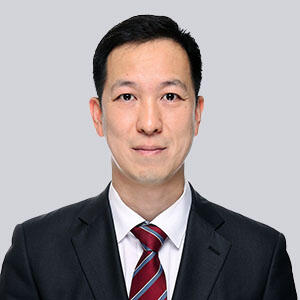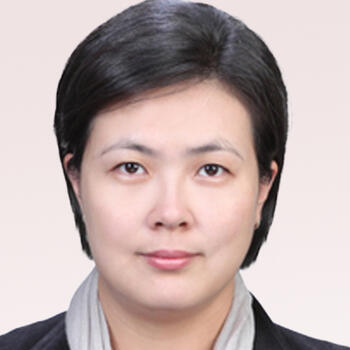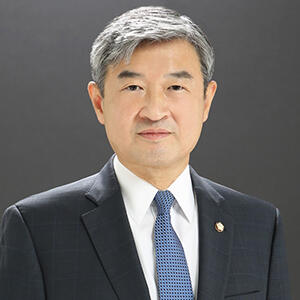“K-Pop Stars, Too, Should Speak Out on Human Rights Issues,” Says Stanford Sociologist Gi-Wook Shin
This is an English translation of an article first published by the Chosun Ilbo.
See also the coverage by VOA Korea.
"Americans wonder why K-pop stars don't talk about universal issues such as human rights problems,” says Stanford sociologist Gi-Wook Shin, the director of the Shorenstein Asia-Pacific Research Center (APARC). “Isn’t it time for K-pop singers, too, to use their position to speak out?”
According to Shin, who is also the founding director of the Korea Program at APARC, K-pop and North Korean human rights are two aspects of Korea that particularly draw the interest of the general public in the United States. In May 2022, APARC will mark the 20th anniversary of the Korea Program. As part of the commemorative activities, the Program is producing a documentary about K-pop, followed by one that covers North Korean human rights.
"With a focus on these two issues, we hope to strengthen the Korea Program’s academic roots by linking to the field of Korean studies and to shed new light on North Korean human rights,” said Shin in a February 8th interview with Chosun Ilbo. He noted that, when seeking out topics for the documentaries to spotlight, he and his team kept in mind Silicon Valley’s strong consumer-oriented climate and the interests of students and the public.

In South Korea, the production of the documentaries is carried out by director Lee Hark-joon, a professor at Kyungil University and former TV Chosun producer-director. Lee is the creator of "Crossing Heaven’s Border," a documentary about North Korean defectors, as well as "9 Muses of Star Empire," which recorded scenes of the K-pop industry. For the forthcoming documentaries, he intends to capture footage that has not been seen on camera before, such as domestic K-pop production sites and the human rights movement in the North Korea-China border region.
To plan the creative direction of the K-pop documentary, the team at APARC has met frequently with the production crew in Korea via Zoom. Researchers of diverse origins and ethnicities participate in these meetings, but the official language is Korean. According to Shin, "Students acquire Korean even through self-study, and many are familiar with K-pop groups that I hadn’t even heard of, like aespa." He adds that "We spent two lectures on K-pop in my course on Korea last year, and there is not enough suitable video material to use for classes — this is another motivation behind producing these documentaries."
When Shin meets with Stanford students to discuss K-pop, they ask questions such as why, if K-pop enjoys immense status, K-pop singers do not seem to talk about issues such as human rights, whether Korean singers know that crowds of demonstrators sing K-pop songs while protesting for democratization in Asian countries like Myanmar, and if K-pop will be sustainable.
While these are questions that must be answered for K-pop’s future, "Americans are reading K-pop in a very American code," explains Shin. Americans also supported the South Korean human rights movement during the time of the country's authoritarian government in the 1970s. “Now,” notes Shin, “American intellectuals constantly discuss North Korean human rights or Chinese democracy. On the other hand, it is ironic that South Korean progressive groups, who received foreign help in their fight for human rights in the 1970s, downplay the human rights crisis in North Korea."
Shin shared that he and his team are also considering plans to make a proper documentary on Korea and distribute it through Netflix, where Korean content is gaining immense popularity.
Read More
K-pop and North Korean human rights are the subjects of two documentaries to be released this spring to mark the 20th anniversary of Stanford University’s Korea Program, reveals Professor Gi-Wook Shin.






 Jenny Jun is a PhD Candidate in the Department of Political Science at Columbia University and Nonresident Fellow at the Atlantic Council’s Cyber Statecraft Initiative. Her current research explores the dynamics of coercion in cyberspace. Her broader interests include cyber conflict, North Korea, and security issues in East Asia. Jenny is a co-author of the 2015 Center for Strategic and International Studies (CSIS) report North Korea’s Cyber Operations: Strategy and Responses, published by Rowman & Littlefield. She has presented her work on North Korea’s cyber operations at various panels and has provided multiple government briefings and media interviews on the topic. She received her MA and BS each from the Security Studies Program (SSP) and the School of Foreign Service (SFS) at Georgetown University.
Jenny Jun is a PhD Candidate in the Department of Political Science at Columbia University and Nonresident Fellow at the Atlantic Council’s Cyber Statecraft Initiative. Her current research explores the dynamics of coercion in cyberspace. Her broader interests include cyber conflict, North Korea, and security issues in East Asia. Jenny is a co-author of the 2015 Center for Strategic and International Studies (CSIS) report North Korea’s Cyber Operations: Strategy and Responses, published by Rowman & Littlefield. She has presented her work on North Korea’s cyber operations at various panels and has provided multiple government briefings and media interviews on the topic. She received her MA and BS each from the Security Studies Program (SSP) and the School of Foreign Service (SFS) at Georgetown University.





![[Top left] Gi-Wook Shin; [top right] Roberta Cohen; [bottom left] Tomás Ojea Quintana; [bottom right] Joon Oh](https://fsi9-prod.s3.us-west-1.amazonaws.com/s3fs-public/styles/727x409/public/hero/korea_un_north_korea_human_rights_hero.png?h=c4d9845d&itok=HNhbd4Ot)



